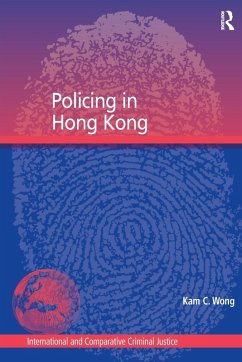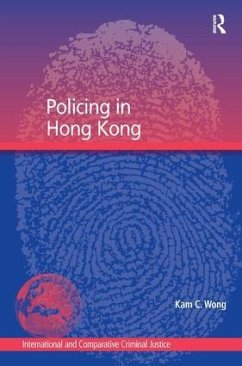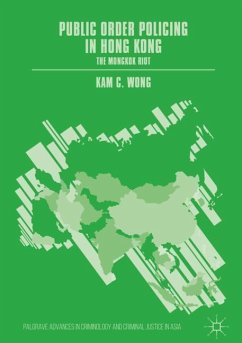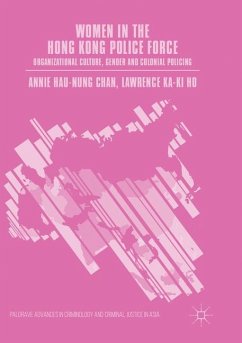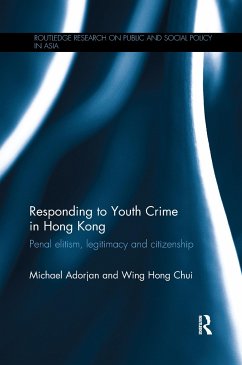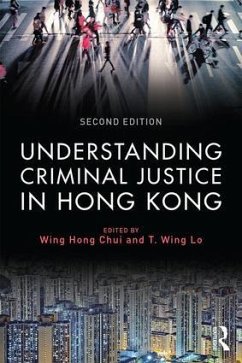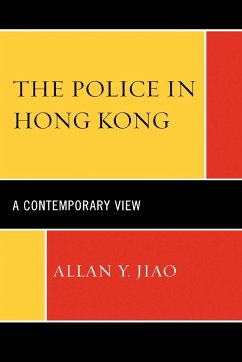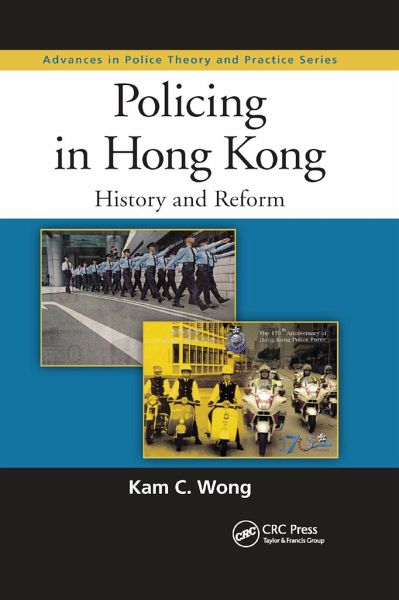
Policing in Hong Kong
History and Reform
Versandkostenfrei!
Versandfertig in 1-2 Wochen
63,99 €
inkl. MwSt.
Weitere Ausgaben:

PAYBACK Punkte
32 °P sammeln!
The HKP (Hong Kong Police), 'Asia's Finest', is a battle-tested professional organization with strong leadership, competent staff, and deep culture. It is also a continuously learning and reforming agency in pursuit of organisational excellence. Policing in Hong Kong: History and Reform is the first and only book on the development of the Hong Kong Police from an inside out and bottom up perspective. Written by a scholar and veteran of the HKP, it is an amalgamation of indigenous theory and supporting data. Part One begins by describing the development of police studies in Hong Kong as an emer...
The HKP (Hong Kong Police), 'Asia's Finest', is a battle-tested professional organization with strong leadership, competent staff, and deep culture. It is also a continuously learning and reforming agency in pursuit of organisational excellence. Policing in Hong Kong: History and Reform is the first and only book on the development of the Hong Kong Police from an inside out and bottom up perspective. Written by a scholar and veteran of the HKP, it is an amalgamation of indigenous theory and supporting data. Part One begins by describing the development of police studies in Hong Kong as an emerging field since the 1990s. It supplies an analytical and empirical construct of colonial policing as well as a theoretical assessment. It discusses the nature, topologies, conduct, impact, and assessment of police reform. The book demonstrates how colonial policing in Hong Kong and elsewhere takes on the community's local color and hue in practice. Colonial policing in Hong Kong is "policing with Chinese characteristics." Part Two tracks the history of the HKP's formation in the 1840s and examines how colonial policing in Hong Kong has changed over time. It describes the HKP's four distinctive reform periods: the formation period (1845), the reorganisation period (1872), the modernisation period (1950s), and finally, the decolonisation period (1990s). It argues that HKP reform in the1950s was the pivotal point in transforming the HKP from a colonial force into a civil one by way of localisation, legalisation, modernisation, communalisation, and organisation. Overall, the book questions previously accepted colonial history, and in doing so, contributes to our understanding of challenges and opportunities facing HKP after the reversion of political authority from England to China.





